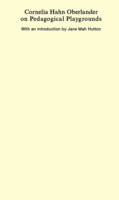Gendering the Renaissance
Text and Context in Early Modern Italy
The essays in Gendering the Renaissance offer a nuanced picture of gender in early modern Italian literature and culture through overlapping lenses that bring into focus myriad issues, from race and religion to schooling and storytelling. Read in dialogue with one another, these interventions provide a multifaceted view of currents in gender studies and early modern Italy.
Garbage in the Garden State
Enduring Polygamy
Plural Marriage and Social Change in an African Metropolis
Enduring Polygamy explores sweeping social changes in urban Africa through the lens of plural marriage. The book offers insights into gender dynamics and the cultural, economic, and political factors affecting how, when, and why people marry. The bookoffers an open-minded but unflinching perspective on a contested but resilient form of marriage.
Dying Green
A Journey through End-of-Life Medicine in Search of Sustainable Health Care
Dying Green considers the environmental costs of common healthcare practices, raising an urgent question: in striving to improve the health outcomes of individual patients, are we damaging human health on a global scale? Offering a comparative analysis of the care provided to terminally ill patients in different settings, it envisions a more sustainable approach to healthcare.
Dall Sheep Dinner Guest:
Inupiaq Narratives of Northwest Alaska
Caribes 2.0
New Media, Globalization, and the Afterlives of Disaster
Caribes 2.0 looks at the Caribbean mediasphere in the twenty-first century. It argues that we have seen a return to tropes such as blackface, cultural and ethnic stereotypes, and violent representations of the marginalized. The booklooks at these tropes and the work of Caribbean media figures and examines how they are challenging and negotiating these media representations.
Cancer Entangled
Anticipation, Acceleration, and the Danish State
Cancer Entangled
Anticipation, Acceleration, and the Danish State
1650-1850
Ideas, Aesthetics, and Inquiries in the Early Modern Era (Volume 28)
The Unequal Ocean
Living with Environmental Change along the Peruvian Coast
Based on a decade of ethnographic and archival research in Peru, this volume reveals how prevailing representations of the ocean obscure racialized disparities and the ways that different people experience the impacts of the climate crisis. The book also addresses expanding scholarly interest in the world’s oceans as sites for thinking about social inequities, environmental politics, and multispecies relationships.
The Thirty-first of March
An Intimate Portrait of Lyndon Johnson
The Mexican American Experience in Texas
Citizenship, Segregation, and the Struggle for Equality
Nested Ecologies
A Multilayered Ethnography of Functional Medicine
How functional medicine leverages systems biology and epigenetic science to treat the microbiome and reverse chronic disease.
Ecosublime
Environmental Awe and Terror from New World to Oddworld
Explores 19th-century, modern, postmodern, and millennial texts as they portray the changing ecological face of America
Dinosaurs and Other Ancient Animals of Big Bend
A time-traveling field guide to the ancient version of Big Bend National Park.
Carbon Sovereignty
Coal, Development, and Energy Transition in the Navajo Nation
This deep dive into the coal industry and the Navajo Nation captures a pivotal moment in the history of energy shift and tribal communities. Geographer Andrew Curley spent more than a decade documenting the rise and fall coal, talking with those affected most by the changes—Diné coal workers, environmental activists, and politicians.
Backpacking Florida
Featuring 40 overnight trail adventures covering a total of 600 miles across the state, this guide provides readers with the tools and information they need to experience the perfect Florida backpacking trip.
Pushing Boundaries in Southwestern Archaeology
Chronometry, Collections, and Contexts
Pushing Boundaries in Southwestern Archaeology draws together the proceedings from the sixteenth biennial Southwest Symposium.
Shaping Dance Canons
Criticism, Aesthetics, and Equity
The first book to examine dance criticism in the United States across 100 years, this study argues that critics in the popular press have influenced how dance has been defined and valued, as well as which artists and dance forms have been taken most seriously.
Writing on the Wall
Writing Education and Resistance to Isolationism
The first concerted effort of writing studies scholars to interrogate isolationism in the United States, Writing on the Wall reveals how writing teachers—often working directly with students who are immigrants, undocumented, first-generation, international, and students of color—embody ideas that counter isolationism.
Writing Centers and Learning Commons
Staying Centered While Sharing Common Ground
Writing Centers and Learning Commons presents program administrators, directors, staff, and tutors with theoretical rationales, experiential journeys, and go-to practical designs and strategies for the many questions involved when writing centers find themselves operating in shared environments.
Unwell Writing Centers
Searching for Wellness in Neoliberal Educational Institutions and Beyond
Unwell Writing Centers focuses on the inroads the wellness industry has made into higher education. Following graduate and undergraduate writing tutors during a particularly stressful period (2016–2019), Genie Nicole Giaimo examines how top-down and bottom-up wellness interventions are received and taken up by workers.
The Age of Dissent
Revolution and the Power of Communication in Chile, 1780–1833
Improving Learning and Mental Health in the College Classroom
How teachers can help combat higher education’s mental health crisis.
Hero Me Not
The Containment of the Most Powerful Black, Female Superhero
Hashtag Activism Interrogated and Embodied
Case Studies on Social Justice Movements
Hashtag Activism Interrogated and Embodied analyzes the ways that hashtags repurpose and reclaim societal narratives, considering how these digital interactions carry over into external spaces and are embodied by both participants and spectators alike.
Dying Green
A Journey through End-of-Life Medicine in Search of Sustainable Healthcare
Composing Place
Digital Rhetorics for a Mobile World
Composing Place takes an innovative approach to engaging with the compositional affordances of mobile technologies.
American Energy Cinema
Historians investigate the relationships between film, culture, and energy.
Transforming Borneo
From Land Exploitation to Sustainable Development
Timor-Leste
From Conflict to Reconciliation, Democracy, and Regional Integration
Tides of Insecurity
Vietnam and the Growing Challenge from Non-traditional Maritime Threats
Rhizome vs Regime
Southeast Asia’s Digitally Mediated Youth Movements
Rape, Agency, and Carceral Solutions
From Criminal Justice to Social Justice
Moʻolelo
The Foundation of Hawaiian Knowledge
GVC Reconfiguration
Risks and Opportunities for ASEAN Members
Handheld Landscapes
The Four Seasons in Chinese Paintings from the Birmingham Museum of Art
The Palmetto Book
Histories and Mysteries of the Cabbage Palm
Success with Sensory Supports
The ultimate guide to using sensory diets, movement breaks, and sensory circuits at school
For those looking to support children’s sensory needs in school settings, this is an essential guide to harnessing the full powers of sensory supports. Features personal anecdotes from Kim, links to further reading, reflective questions, teacher perspectives as well as practical examples, to guarantee success.
Revolutions in Cuba and Venezuela
One Hope, Two Realities
Households on the Mimbres Horizon
Excavations at La Gila Encantada, Southwestern New Mexico
This book explores variability in Mimbres Mogollon pithouse sites using a case study from La Gila Encantada to further our understanding of the full range of pithouse occupations in the area. Because the site is away from the major river valleys, the data from excavations at the site provides valuable information on the differences in cultural practices that occurred away from the riverine villages, as well as environmental differences, economic practices, and social constructs.





































